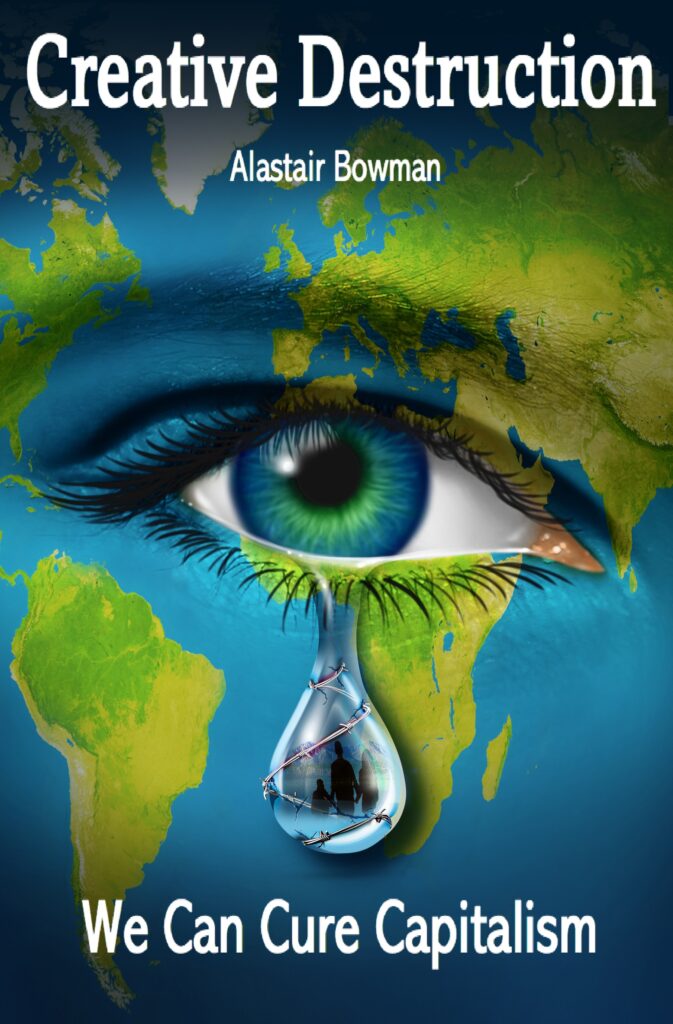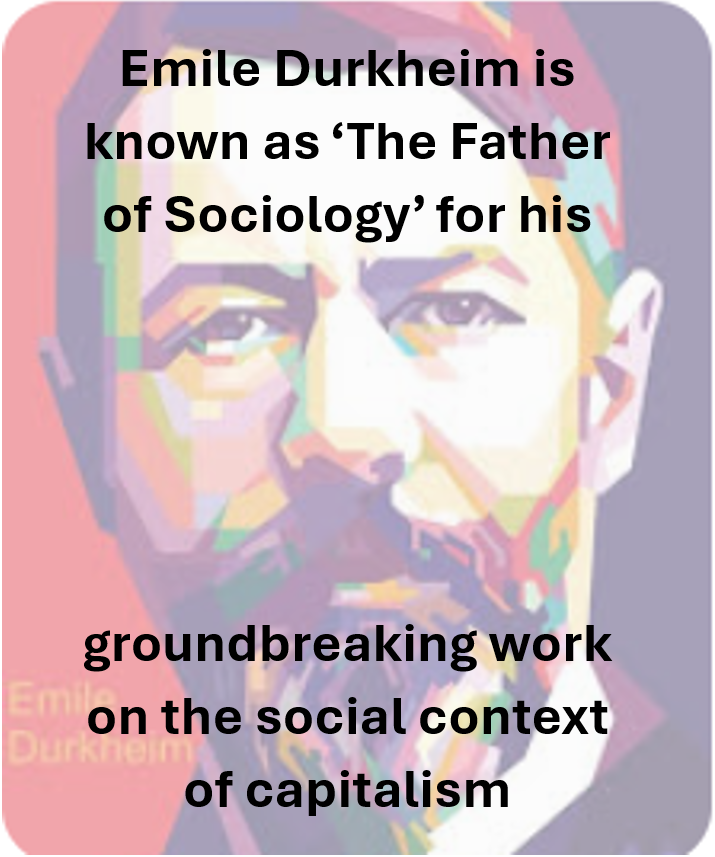
Steinbeck’s The Grapes of Wrath made me realise that the social and moral context of economics matters and that a novel is a great way to explore it. When I wrote the first draft of Creative Destruction in the late 1990s, the social collapse that triggers the novel was scheduled for a distant 2033.
It went through various iterations but, alarmingly, I only blurred that timeline in the final re-write post-Brexit and Covid. Even then it was only because the infrastructure the novel needs was no longer plausible and not because our society seems too strong to fail so soon.
In terms of social cohesion and sustainability, we are in real trouble. Western societies are deeply divided and the international environment is becoming more hostile. A big part of the problem is that we have got capitalism wrong – a key theme in Creative Destruction.

Free markets liberated us from the overweening power of church and aristocracy and created a rights culture. Emile Durkheim established the constitutional, commercial and civil law that capitalism requires back in 1893.
Free markets empower people with a choice of where to buy, work and live, and vendors compete with lower prices right down the supply chain.
Free trade operates above our heads, regulating governments and giving capital the right to own, operate and profit, in markets that may be scarred by monopoly, corruption, kleptocracy, tyranny, slavery and child labour.
Free markets are democratising; free trade can entrench power, concentrate wealth, limit the scope of civil society, and undermine prospects for economic and political development.
With free trade, we are exporting the economics of capitalism while keeping the rights culture for ourselves.

When an African landowner chooses to export, the farm worker still has a job but the product of the local land, water and labour is shipped out of the country for the benefit of someone else. With less food for local consumption, everyone faces higher prices. In recompense, the landowner receives more profit.
Unless there is a labour shortage, there is no reason to expect higher profits to fund higher wages. More likely, any hard currency is placed in foreign bank accounts, or spent on imported luxuries, or imported machinery to replace the labourers altogether.
Worst of all, the money could be used to buy guns. Then people lose twice over from free trade, seeing the product of the local land, water and labour exported and the tools of their repression bought with the proceeds.
For consumers, free trade makes imports cheaper but at the cost of our long-term security. Moreover, it gives despots a competitive advantage because people without rights are cheaper to employ and easier to exploit.
We used to think that made dictatorships less productive but China has proved that wrong. Putting a tariff on countries that restrict or abuse basic rights would help democracies by cutting unfair competition.
Struggling democracies would be the first to benefit, but the real winners could be the captive populations. Longer term, global trade may incentivise democracy and human rights instead of entrenching despotic power. Near term, captive populations benefit from any switch to domestic demand, given their despot’s need to replace lost export markets to extract any value from their work.
The only real winners from free trade are the tyrants.
To read more on reforming global trade:
Democratising global trade: here’s how
Why make the World’s poor fight anew for rights we know they need